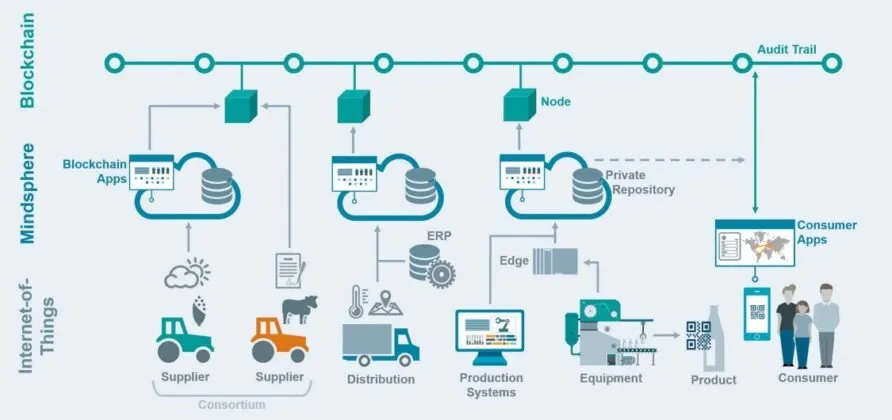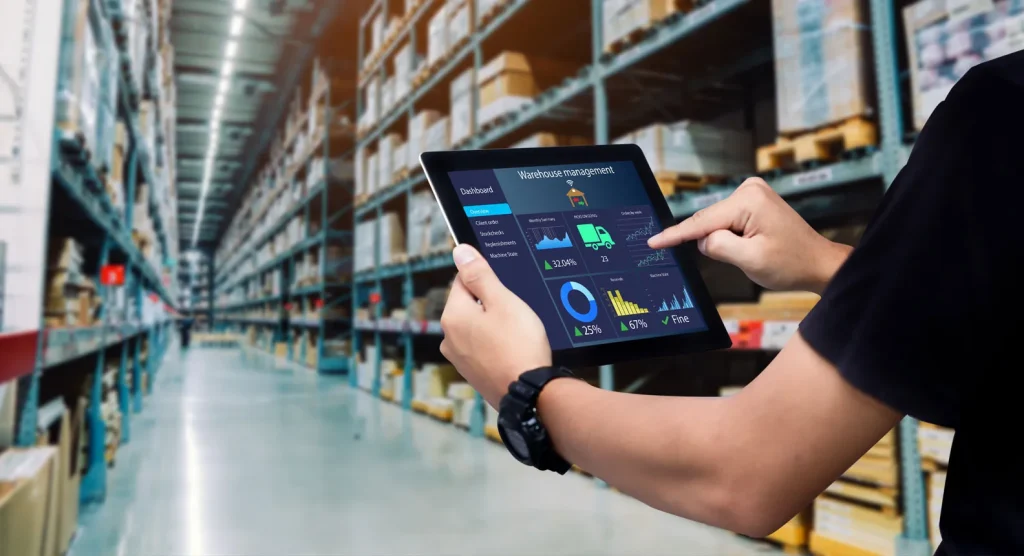Blockchain Beyond Finance: Supply Chains and Enterprise Adoption
Blockchain technology, initially popularized by cryptocurrencies, is increasingly being adopted by Chinese enterprises to optimize supply chains, enhance transparency, and improve operational efficiency. Beyond its financial applications, blockchain offers immutable record-keeping, smart contract automation, and secure data sharing, making it a transformative tool for industries ranging from logistics and manufacturing to healthcare and e-commerce. China’s emphasis on enterprise blockchain adoption reflects both national technological ambitions and corporate strategies aimed at improving competitiveness and resilience.

Strategic Drivers of Enterprise Blockchain Adoption
Several factors drive the adoption of blockchain in Chinese enterprises. First, increasing consumer demand for product traceability and quality assurance creates a need for transparent supply chain solutions. Second, regulatory emphasis on secure data management encourages the integration of distributed ledger technologies. Third, international trade complexities, including customs compliance and cross-border transactions, highlight the utility of blockchain for reducing inefficiencies and fraud. Together, these drivers create an environment in which blockchain adoption is both technologically and economically advantageous.
Applications in Supply Chain Management
Blockchain enhances supply chain operations by providing secure, immutable records of product movement and provenance. In sectors such as food, pharmaceuticals, and electronics, enterprises can track goods from manufacturing to delivery, ensuring authenticity and compliance with safety standards. Smart contracts automate processes such as payment release, shipment verification, and regulatory reporting, reducing administrative overhead and human error. For example, logistics companies in Shenzhen and Shanghai utilize blockchain to coordinate shipments, monitor delivery status, and verify supplier credentials, demonstrating tangible efficiency gains.
Integration with IoT and Data Analytics
The combination of blockchain with Internet of Things (IoT) devices amplifies its benefits for enterprise applications. Sensors embedded in goods, vehicles, and storage facilities collect real-time data, which is recorded on blockchain networks to ensure integrity and traceability. Data analytics platforms then process this information to generate insights for predictive maintenance, inventory optimization, and demand forecasting. This integration enables enterprises to make data-driven decisions, enhance operational efficiency, and proactively address supply chain disruptions.
Enhancing Trust and Transparency
Blockchain’s immutable ledger and decentralized architecture provide a foundation for trust among supply chain participants. Enterprises, suppliers, regulators, and consumers can access verified information about product origin, production processes, and transit history. This transparency mitigates risks of counterfeiting, fraud, and miscommunication, fostering confidence in both domestic and international trade. Companies that implement blockchain solutions are able to differentiate themselves in competitive markets by offering verifiable quality assurance and accountability.
Government Support and Policy Frameworks
Chinese authorities actively support blockchain adoption through regulatory guidance, pilot programs, and investment incentives. Initiatives such as the Blockchain Service Network (BSN) provide standardized infrastructure, interoperability, and cost-effective access for enterprises seeking to implement blockchain solutions. Government-backed projects in logistics, healthcare, and public administration serve as testbeds for scalable applications, offering valuable insights and best practices. These policy measures create an ecosystem in which innovation is encouraged while compliance with legal and ethical standards is maintained.
Case Studies of Successful Implementation
Several Chinese enterprises have demonstrated the value of blockchain adoption in supply chains. A leading e-commerce platform uses blockchain to authenticate high-value products, ensuring consumers receive verified items while reducing counterfeit risks. Logistics firms track container movements and automate customs clearance using smart contracts, reducing processing time and errors. In the pharmaceutical sector, blockchain enables hospitals and suppliers to verify drug provenance, monitor storage conditions, and prevent the circulation of expired or counterfeit medications. These case studies illustrate blockchain’s versatility and effectiveness across industries.
Challenges and Considerations
Despite its potential, blockchain adoption faces challenges that include scalability, interoperability, and integration with legacy systems. High initial implementation costs, limited technical expertise, and the need for cross-organization coordination can impede deployment. Enterprises must also consider data privacy, regulatory compliance, and cybersecurity risks associated with distributed networks. Overcoming these challenges requires strategic planning, collaboration with technology providers, and investment in training and infrastructure to ensure sustainable and effective implementation.
Future Prospects for Enterprise Blockchain
Looking ahead, blockchain is expected to play an increasingly central role in Chinese enterprise operations. Emerging applications include cross-border trade settlement, digital identity verification, carbon credit tracking, and smart city infrastructure management. Integration with AI, cloud computing, and big data analytics will further enhance blockchain’s capabilities, enabling predictive decision-making and automated compliance processes. As enterprises continue to adopt these technologies, blockchain will not only improve operational efficiency but also contribute to broader goals of transparency, sustainability, and innovation across sectors.
Conclusion: Transforming Enterprise Operations with Blockchain
Blockchain adoption beyond finance represents a paradigm shift in enterprise operations. By enabling transparent, secure, and efficient supply chain management, Chinese companies are leveraging this technology to enhance competitiveness, build trust, and optimize processes. Integration with IoT and data analytics further expands blockchain’s value proposition, supporting real-time decision-making and operational agility. Government support, strategic planning, and cross-sector collaboration ensure that these innovations are scalable and sustainable. As blockchain continues to evolve, its impact on enterprise efficiency, transparency, and technological advancement will shape the future of industry both within China and globally.






